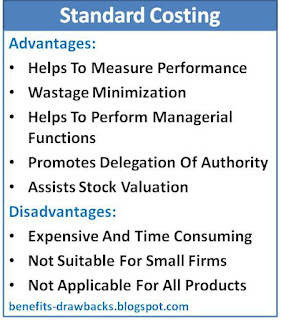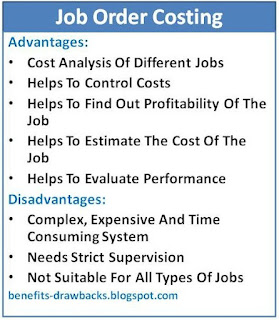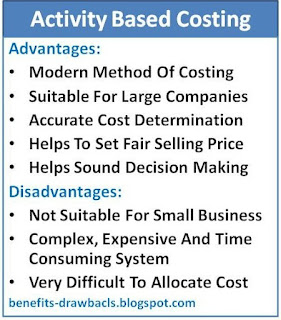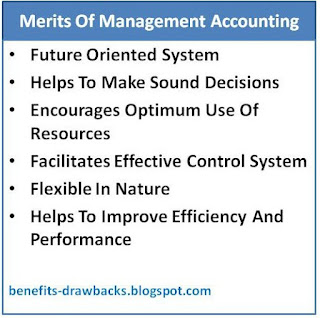Merits/Advantages Of Standard Costing
Main benefits or advantages of standard costing system can be expressed as follows:
1. Performance Evaluation
Standard costing is a management technique that estimates the cost of the product and makes comparison with actual cost of that product. So, it helps to measure the efficiency and performance of operation.
2. Wastage Minimization
Standard costing helps to reduce inefficiency and wastage of production process with the help of variance analysis.
3. Assists Management
Standard costing helps the management to perform various functions like planning, goal-setting, coordinating, budgeting, controlling and decision making.
4. Delegation Of Authority
Standard costing system ensures effective delegation of authority by setting the standard performance and assigning responsibility to the concerned person.
Also Read:
5. Stock Valuation
Stock valuation process becomes easier with the help of standard costing. Because stock or inventory is valued at predetermined (standard) costs.
6. Employee Motivation
Standard costing helps the management to prepare incentive schemes and bonus plan to encourage workers. It motivates the workers to do their job more effectively and efficiently and ensures better output.
Demerits/Disadvantages Of Standard Costing
Standard costing suffers from the following drawbacks or limitations:
1. Expensive And Time Consuming
It takes a lot of time and money to install and maintain standard costing system in the organization. It is a labor intensive and expensive costing system.
Demerits/Disadvantages Of Standard Costing
Standard costing suffers from the following drawbacks or limitations:
1. Expensive And Time Consuming
It takes a lot of time and money to install and maintain standard costing system in the organization. It is a labor intensive and expensive costing system.
2. Suitability
Standard costing system is suitable only for big manufacturing firms with higher degree of skill and resources. It is not applicable for small scale business firms with lower volume of production.
3. Not Applicable For All Products
Fixing standard is impossible for non-standardized products. So, standard costing is not applicable for those manufacturing firms which produce non-standardized products.
















